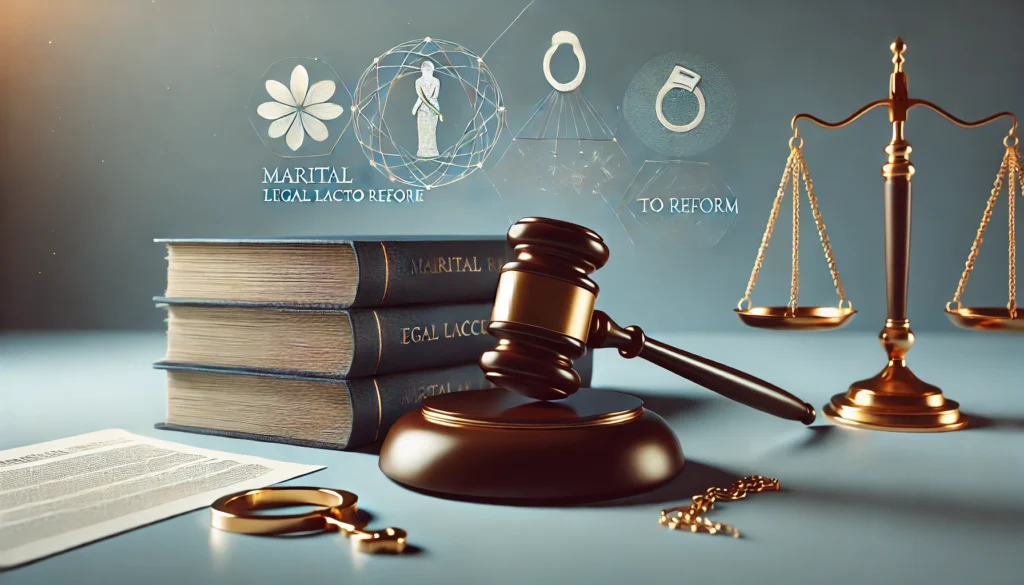Published On: 1st March, 2024
Introduction:
In the ever-evolving landscape of international relations, the traditional narrative of nation-states as the primary actors on the global stage is undergoing a profound transformation. The 21st century has witnessed a seismic shift in the dynamics of global governance, with non-state actors emerging as influential players, challenging established norms and reshaping the contours of international law. This article delves into the multifaceted role of non-state actors in the realm of international law, scrutinizing the challenges they pose and the opportunities they present for the existing legal framework. As globalization transcends geographical boundaries, non-state actors such as multinational corporations, non-governmental organizations (NGOs), and transnational advocacy networks have become formidable forces shaping policies and influencing global affairs. The implications of this transformation extend far beyond conventional notions of state sovereignty, prompting a reevaluation of the role of non-state actors within the intricate web of international legal norms.
The challenges encountered in this paradigm shift are both intricate and manifold. Non-state actors often operate in the interstices of state boundaries, raising questions about accountability, jurisdiction, and the enforcement of international law. The power asymmetry between these entities and smaller nation-states introduces complexities, challenging the principles of equality and fairness enshrined in international legal frameworks. Moreover, the rapid evolution of non-state actors has outpaced the development of corresponding international regulations, leaving regulatory gaps that may be exploited, leading to legal ambiguities and enforcement challenges. Amidst these challenges, however, lie opportunities that promise to redefine global governance for the better. Non-state actors bring innovative solutions to the forefront, pushing the boundaries of conventional legal frameworks. Their involvement catalyzes the development of flexible and dynamic legal structures that adapt to the evolving needs of the international community. NGOs, armed with the power of advocacy, become crucial watchdogs, holding states accountable for human rights violations and contributing to the evolution of human rights law. This exploration of the role of non-state actors in international law aims to unravel the intricate tapestry of challenges and opportunities in this shifting paradigm. As we navigate the complexities of this evolving landscape, it becomes imperative to discern the delicate balance required to integrate non-state actors into the international legal framework while upholding the principles of justice, equity, and the rule of law.
Abstract:
In recent times, the influence of non-state actors in international affairs has surged, posing both challenges and opportunities for the existing framework of international law. This article delves into the evolving role of non-state actors on the global stage, examining the complexities they introduce to the traditional norms of international law.
Body:
Challenges Faced by the Non-State Actors:
- Lack of Legal Personality:
Non-state actors often lack legal personality in the international legal system. Unlike sovereign states, NSAs are not recognized as formal subjects of international law. This poses a significant challenge in holding them accountable for their actions and ensuring compliance with international norms. The absence of a clear legal status hampers the development of effective mechanisms for regulating the behavior of these entities.
- Accountability and Enforcement:
Holding non-state actors accountable for violations of international law is a complex task. States have well-established mechanisms for accountability, including the International Court of Justice (ICJ). However, these mechanisms are less effective when it comes to NSAs. Multinational corporations, for instance, may operate across multiple jurisdictions, making it difficult to establish responsibility and enforce compliance with international legal standards.
- Regulatory Gaps:
The rapid evolution of technology and globalization has outpaced the development of international legal frameworks to regulate non-state actors adequately. This regulatory gap is particularly evident in areas such as cyberspace, where non-state actors, including hacktivist groups and cybercriminal organizations, operate with relative impunity. Closing these regulatory gaps is essential to ensuring that NSAs operate within the bounds of international law.
Opportunities to get involved:
- Human Rights Advocacy:
Non-state actors, particularly NGOs, play a crucial role in advancing human rights on the global stage. These organizations often act as watchdogs, exposing human rights abuses and advocating for justice. Their ability to mobilize public opinion and influence state behavior contributes to the progressive development of international human rights norms.
- Global Governance Partnerships:
Collaborations between non-state actors and states have the potential to enhance global governance. Public-private partnerships can address issues that transcend national borders, such as climate change, by leveraging the expertise and resources of both states and non-state actors. The Paris Agreement on climate change is an example of how collaboration between governments, NGOs, and businesses can yield positive outcomes.
- Innovation and Expertise:
Non-state actors often bring innovation and specialized expertise to address global challenges. Private sector entities, for instance, can contribute technical solutions and financial resources to tackle issues like poverty, healthcare, and education. Harnessing the capabilities of non-state actors can lead to more effective and efficient solutions to complex global problems.
Case Study
- Non-Governmental Organizations (NGOs) and Human Rights:
– Case Study: Amnesty International
Amnesty International is a well-known international non-governmental organization focused on human rights. It was founded in 1961 and operates globally, independently investigating and reporting on human rights abuses. One notable case is Amnesty International’s involvement in exposing and condemning the use of torture at Guantanamo Bay detention camp. Despite being a non-state actor, Amnesty International’s reports and advocacy have had a considerable impact on shaping international perceptions and influencing governments to address human rights violations.
Legal Implications:
NGOs like Amnesty International contribute to the development of customary international law by promoting norms and standards related to human rights. They use international law as a tool for advocacy, putting pressure on states to adhere to their legal obligations. While NGOs don’t create laws themselves, their activities often lead to changes in state behavior and the development of new legal standards.
- Transnational Corporations and Environmental Regulation:
Case Study: Chevron-Texaco Oil Contamination in Ecuador
The case of oil contamination in the Ecuadorian Amazon involving Chevron (formerly Texaco) illustrates the role of transnational corporations in environmental issues. Texaco, operating in Ecuador from 1964 to 1992, faced allegations of causing widespread environmental damage through oil spills and improper waste disposal. Indigenous communities filed a lawsuit, leading to a complex legal battle that involved not only the affected communities and the Ecuadorian government but also international environmental organizations.
Legal Implications:
This case highlighted the challenges of holding transnational corporations accountable for environmental harm in multiple jurisdictions. It showcased the need for international legal mechanisms to address environmental issues caused by non-state actors. The legal landscape is evolving to include frameworks for corporate responsibility and accountability, such as the UN Guiding Principles on Business and Human Rights.
In both cases, non-state actors played pivotal roles in shaping international norms and influencing state behavior, illustrating the dynamic interaction between state and non-state actors in the realm of international law.
Conclusion:
In the dynamic tapestry of international relations, the rising influence of non-state actors unveils a complex interplay of challenges and opportunities, reshaping the landscape of global governance. As we draw conclusions on the evolving role of these entities in international law, it becomes evident that a delicate equilibrium must be sought to harness the potential benefits while mitigating the associated risks. The challenges posed by non-state actors are multifaceted and demand thoughtful consideration. The issue of accountability and jurisdiction is paramount. With these actors operating beyond traditional state boundaries, determining the appropriate forum for holding them accountable remains a formidable challenge. Establishing jurisdiction and ensuring compliance with international law necessitates innovative legal approaches that can adapt to the complexities of a globalized world. Power imbalances introduce a dimension of uncertainty, raising concerns about fairness and equality. The asymmetry between the influence of non-state actors and smaller nation-states poses a risk of unequal negotiations and agreements. Striking a balance that respects the sovereignty of states while acknowledging the evolving role of non-state entities is crucial for fostering a more equitable international legal framework. Regulatory gaps, a consequence of the rapid evolution of non-state actors, present a hurdle in effective governance. The lack of clear regulations allows for potential exploitation, creating ambiguities that impede the enforcement of international law. Closing these regulatory gaps is imperative to address emerging challenges promptly and maintain the integrity of the global legal system.
However, amid these challenges lies a landscape teeming with opportunities. Non-state actors bring a breath of fresh air to global problem-solving. Their innovative solutions and dynamic approaches offer the potential to reshape international law for the better. By catalyzing the development of flexible legal frameworks, these actors contribute to a more adaptive and proactive response to the ever-evolving needs of the international community. Furthermore, the engagement of non-state actors in human rights advocacy stands out as a beacon of hope. NGOs, in particular, emerge as crucial advocates, holding states accountable for human rights violations. This collaborative effort strengthens the foundations of international law, underlining the importance of collective responsibility in upholding fundamental human rights. Inclusive governance, marked by the collaboration between states and non-state actors, emerges as a key opportunity. This collaborative approach, whether addressing climate change or humanitarian interventions, enhances the effectiveness of global initiatives. The integration of diverse perspectives into decision-making processes reflects a more democratic and representative model of global governance.
In conclusion, as we navigate the challenges and opportunities presented by non-state actors in international law, a holistic and collaborative approach is paramount. Striking the delicate balance between accountability and innovation, between sovereignty and collaboration, ensures that the evolving role of non-state actors contributes positively to the advancement of global governance and the resilience of international law in the face of a rapidly changing world.
References
Chesney, R., & Goldsmith, J. (2019). The Constitutionalizing of International Law and the Militant Democracy Paradox. Harvard Law Review, 132(8), 2033–2110.
Romano, C. P. R. (2006). A Glass Half Full: The Security Council, Enforcement and the Rule of Law. American Journal of International Law, 100(3), 702–713.
Zohar, A., & Teubner, G. (2017). Regulatory Intermediation as a Legal Model for Global Administrative Law. European Journal of International Law, 28(1), 115–143.
Haufler, V. (2010). Disclosure as Governance: The Extractive Industries Transparency Initiative and Resource Management in the Developing World. Global Environmental Politics , 10(3), 53–73.
Prakash, A., & Potoski, M. (2006). Racing to the Bottom? Trade, Environmental Governance, and ISO 14001. American Journal of Political Science, 50(2), 350–364.
Amnesty International. (n.d.). About Us. Retrieved from https://www.amnesty.org/en/who-we-are/
Telesetsky, A. (2018). The Role of Indigenous Peoples and Human Rights Litigation in Advancing Environmental Sustainability. Review of European, Comparative & International Environmental Law , 27(1), 56–67.




